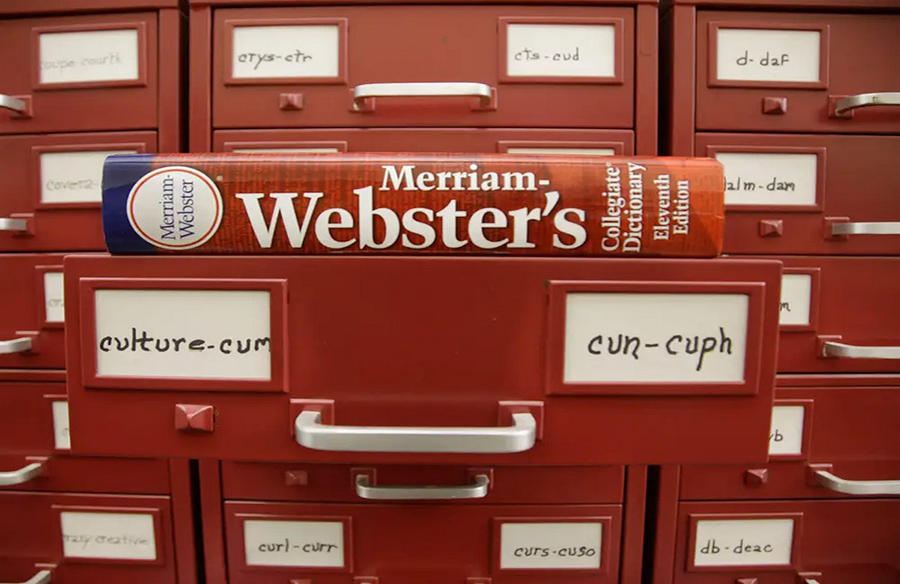This week, language enthusiasts celebrated as Merriam-Webster introduced 455 new words to its renowned dictionary, marking a significant expansion of the lexicon. Among the diverse array of additions were terms reflecting internet slang, the impact of the coronavirus pandemic, political discourse, and elements of pop culture.
Exploring the Evolution of Language
Merriam-Webster, a stalwart in the world of reference publications since 1831, continuously evolves its dictionary to reflect the ever-changing landscape of language usage. The decision to include new words is informed by meticulous analysis conducted by the dictionary’s editors, who scrutinize linguistic trends and assess the prevalence and significance of emerging terms.
Embracing Linguistic Diversity
This latest batch of additions mirrors the dynamic nature of contemporary communication, encompassing expressions prevalent in online discourse, discussions surrounding the pandemic, political terminology, culinary concepts, and cultural references. The inclusion of such terms underscores Merriam-Webster’s commitment to capturing the richness and diversity of modern language usage.
Spotlight on Noteworthy Additions
Among the noteworthy additions are several peculiar and distinctive words that offer intriguing insights into evolving linguistic phenomena. Here are eleven of the most notable additions and their definitions:
Astroturf: Referring to artificially cultivated grassroots movements, particularly in the realm of politics, where initiatives appear organic but are actually orchestrated by powerful entities.
Because: Utilized in a humorous or vague manner to convey reasoning, often employed to sidestep detailed explanations or dismiss inquiries.
Copypasta: Denoting widely disseminated online content, ranging from humorous memes to politically charged messages, replicated across digital platforms.
Dad bod: Informally describing the physique typically associated with middle-aged fathers, characterized by moderate weight and minimal muscle definition.
Deplatform: Signifying the removal or prohibition of an individual from online communication platforms, preventing further engagement.
Fluffernutter: A sandwich featuring peanut butter and marshmallow crème between slices of bread, representing a nostalgic culinary delight.
FTW: Abbreviation for “for the win,” commonly used in social media contexts to express approval or enthusiasm.
Ghost kitchen: A commercial facility dedicated to off-premises food preparation, catering to the growing trend of delivery and takeout services.
Long COVID: Referring to persistent symptoms following recovery from COVID-19, such as fatigue and cognitive impairment, extending over an extended period.
Oobleck: A mixture of corn starch and water exhibiting properties of both liquid and solid, often used in educational science experiments.
Whataboutism: The practice of deflecting criticism by pointing out comparable or worse behavior in others, commonly employed in political discourse.
In essence, Merriam-Webster’s latest additions reflect the ongoing evolution of language, capturing the nuances and intricacies of contemporary communication in an ever-changing world. As language continues to evolve, dictionaries like Merriam-Webster serve as invaluable repositories of linguistic heritage and innovation, preserving the richness of human expression for generations to come.




Leave a Reply